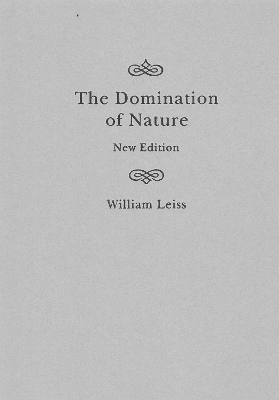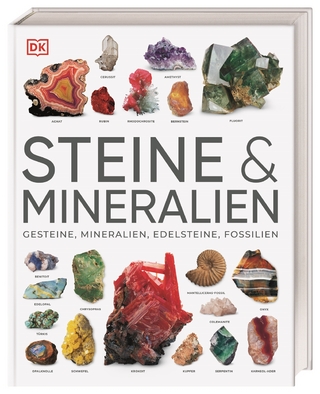
The Domination of Nature
New Edition
Seiten
2023
McGill-Queen's University Press (Verlag)
978-0-2280-1724-0 (ISBN)
McGill-Queen's University Press (Verlag)
978-0-2280-1724-0 (ISBN)
Originally published in 1972, The Domination of Nature was part of the first wave of widespread interest in environmental issues. Leiss argues that our current predicament arises from deeply rooted attitudes toward nature. A new preface explores the concept of eco-dominion and the moral obligations of human citizens of the twenty-first century.
Concern over ecological and environmental problems grows daily, and many believe we’re at a critical tipping point. Scientists, social thinkers, public officials, and the public recognize that failure to understand the destructive impact of industrial society and advanced technologies on the delicate balance of organic life in the global ecosystem will result in devastating problems for future generations.
In The Domination of Nature William Leiss argues that this global predicament must be understood in terms of deeply rooted attitudes towards nature. He traces the origins, development, and social consequences of an idea whose imprint is everywhere in modern thought: the idea of the domination of nature. In part 1 Leiss traces the idea of the domination of nature from the Renaissance to the nineteenth century. Francis Bacon’s seminal work provides the pivotal point for this discussion, and through an original interpretation of Bacon’s thought, Leiss shows how momentous ambiguities in the idea were incorporated into modern thought. By the beginning of the twentieth century the concept had become firmly identified with scientific and technological progress. This fact defines the task of part 2. Using important contributions by European sociologists and philosophers, Leiss critically analyzes the role of science and technology in the modern world. In the concluding chapter he puts the idea of mastery over nature into historical perspective and explores a new approach, based on the possibilities of the liberation of nature.
Originally published in 1972, The Domination of Nature was part of the first wave of widespread interest in environmental issues. In a new preface Leiss explores the concept of eco-dominion and the moral obligations of human citizens of the twenty-first century.
Concern over ecological and environmental problems grows daily, and many believe we’re at a critical tipping point. Scientists, social thinkers, public officials, and the public recognize that failure to understand the destructive impact of industrial society and advanced technologies on the delicate balance of organic life in the global ecosystem will result in devastating problems for future generations.
In The Domination of Nature William Leiss argues that this global predicament must be understood in terms of deeply rooted attitudes towards nature. He traces the origins, development, and social consequences of an idea whose imprint is everywhere in modern thought: the idea of the domination of nature. In part 1 Leiss traces the idea of the domination of nature from the Renaissance to the nineteenth century. Francis Bacon’s seminal work provides the pivotal point for this discussion, and through an original interpretation of Bacon’s thought, Leiss shows how momentous ambiguities in the idea were incorporated into modern thought. By the beginning of the twentieth century the concept had become firmly identified with scientific and technological progress. This fact defines the task of part 2. Using important contributions by European sociologists and philosophers, Leiss critically analyzes the role of science and technology in the modern world. In the concluding chapter he puts the idea of mastery over nature into historical perspective and explores a new approach, based on the possibilities of the liberation of nature.
Originally published in 1972, The Domination of Nature was part of the first wave of widespread interest in environmental issues. In a new preface Leiss explores the concept of eco-dominion and the moral obligations of human citizens of the twenty-first century.
William Leiss is a fellow and past president of the Royal Society of Canada, an officer of the Order of Canada, and professor emeritus at the School of Policy Studies, Queen’s University. He is the author of several books, including Mad Cows and Mother’s Milk: The Perils of Poor Risk Communication.
| Erscheinungsdatum | 03.02.2023 |
|---|---|
| Reihe/Serie | McGill-Queen's Studies in the History of Ideas |
| Verlagsort | Montreal |
| Sprache | englisch |
| Maße | 152 x 229 mm |
| Themenwelt | Sachbuch/Ratgeber ► Natur / Technik ► Natur / Ökologie |
| Naturwissenschaften ► Biologie ► Ökologie / Naturschutz | |
| ISBN-10 | 0-2280-1724-6 / 0228017246 |
| ISBN-13 | 978-0-2280-1724-0 / 9780228017240 |
| Zustand | Neuware |
| Haben Sie eine Frage zum Produkt? |
Mehr entdecken
aus dem Bereich
aus dem Bereich
über 500 faszinierende Gesteine, Minerale, Edelsteine und Fossilien
Buch | Hardcover (2023)
DK Verlag Dorling Kindersley
26,95 €
Familien und Gattungen einheimischer Pflanzen
Buch | Hardcover (2022)
Haupt Verlag
64,00 €
Klimaschutz zerstört die Wirtschaft! ... und andere Stammtischparolen …
Buch | Softcover (2024)
Komplett-Media (Verlag)
24,00 €


